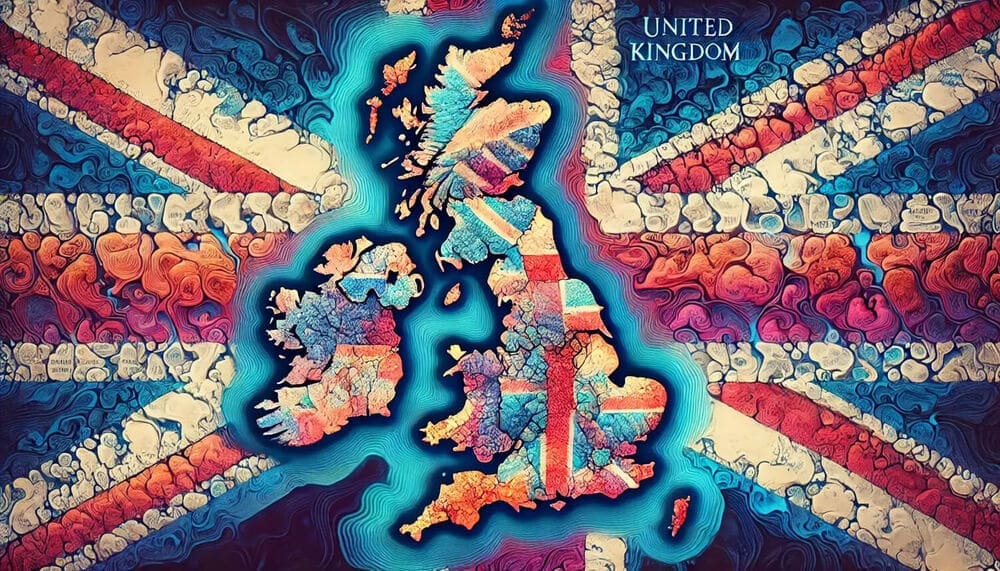South Africa has a dozen official languages and some 34 languages in all, with Zulu being the most widely spoken. That’s a lot of different tongues — even for the sixth most-populated country in Africa. Some 63 million people reside in the vast and varied nation that has a bounty of rich cultures the country embraces.

In fact, South Africa has a language policy that promotes multilingualism and encourages the use of all its official languages. One aim is to facilitate the preservation of minority languages for heritage and cultural purposes. What’s more, South Africa’s constitution protects the country’s unofficial languages.
South Africa’s Official Languages
Twelve official languages are quite a few, so we should first list them. They are Afrikaans, English, isiNdebele, isiXhosa, isiZulu, Sepedi, Sesotho, Setswana, siSwati, Tshivenda, Xitsonga, and South African Sign Language.
Most South Africans speak multiple languages, which generally allows them to communicate well with many communities. Note that in South Africa, English is the primary language of commerce and official business. Outside of that, however, the language is mostly used in the cities. Many South Africans “code switch” – alternating between English and another language within the same sentence or conversation.
But What is an Accent?
Basically, an accent is how someone speaks a language, how they pronounce words. You have an accent, too, as do we all. While you may think you don’t, since you sound like everyone else around you, your accent is discernible to those outside your region or social group.
What Influences Accents in South Africa?
South Africa’s many accents add to the country’s rich and varied culture and identity, rendering the nation linguistically vibrant. The key factor here is geography. Due to historical settlement patterns, different regions have distinct accents.
South Africa’s cultural background – all the diverse ethnic groups — also contribute to the variety of accents. And, because of the multilingualism in the country, there are a number of hybrid accents and expressions.


How AI will Transform Contact Centers in the Next 5 Years
Three predictions, for contact center executives to consider, on how AI will shape the future of contact centers
The Top Accents in South Africa
Afrikaans
In 2024, some 1.5 million readers of Big 7 Travel rated the South African Afrikaans accent the second sexiest in the world, just behind New Zealand Kiwi.
With more than 7 million speakers across South Africa, Afrikaans primarily derives from Dutch and is characterized by a mixture of African and European influences. Contributing to its development were African and Asian workers as well as enslaved peoples from West Africa, East Africa, Madagascar, Mughal India, and what’s now modern Indonesia. The Cape Coloured offspring of European settlers also added to Afrikaans’ development.
It should be noted that, post-Apartheid, Afrikaans has experienced a diminishment of preferential treatment by the government, in terms of social events, education, and general status countrywide. After all, there are now 11 other languages with which Afrikaans must share official status. Still, the Afrikaans accent can be heard in the country’s media more than any other accent, except English.
Within Afrikaans are three distinct accents:
Cape Afrikaans
This accent is most common in the Western Cape and is frequently characterized by a unique vocabulary and soft intonation.
Platteland Afrikaans
This accent, spoken mostly in rural areas, is influenced by local cultures and languages.
Urban Afrikaans
Spoken predominantly in cities such as Johannesburg, this accent is often blended with English and other local languages.
Afrikaans is noted for its melodic, unique tones, rolled “r” sounds, and distinct pitch variations that are generally pleasing to the ear. With rhythms that, for non-native speakers, are commonly considered exotic and captivating, Afrikaans has a perceived friendliness, warmth – and, yes, sexiness — in pronunciation.
English
English came to South Africa around 1795, when the British first occupied the Cape of Good Hope. Most of the influx of English speakers occurred in 1820 when an expansive group of British settlers landed in the Eastern Cape. English was made the official language in South Africa in 1822 by Lord Charles Somerset and was the language of power during the 19th century, replacing Dutch.
South African English became a certain kind of regional version of English, influenced by other, local languages, including Dutch. For example, words have been borrowed from the region’s African languages (“bonsella” and “donga” are from the Nguni languages).
Due to apartheid, there is no uniform South African English accent, as communities were educated and lived separately until the 1990s. Now, there are many accent varieties, including black African and more:
Cape English
English here is influenced by Afrikaans and is commonly found in the Western Cape.
Standard South African English
This accent sounds similar to British English, except that it has distinct local influences.
Indian English
This accent is commonly spoken in communities with Indian heritage and features unique vocabulary and pronunciations.
Indigenous Languages
In South Africa, “indigenous accents” mainly refer to English speech patterns that are considerably influenced by the varying indigenous African languages spoken by most of the black South African population.
The chief factor affecting an indigenous South African accent is the speaker’s first language, which is typically one of the indigenous African languages. In terms of accent characteristics, vowel sounds differ from standard English, and there are variations in word stress placement. Also, depending on the speaker’s first language, some consonant sounds may be pronounced differently.
Indigenous language accents are frequently categorized into these accents:
Zulu
With its distinct sounds and rhythms, this accent reflects the tonal nature of the Zulu language.
Xhosa
Common among Xhosa speakers, this accent is characterized by specific intonations and “click” sounds.
Sotho
Depend on the region, there are variations of this accent including northern and southern Sotho.
Coloured
It’s no secret that the country’s history of accents is inextricable linked, until the 1990s, to the separation of communities by ethnic background. From 1950 until 1991, a “Coloured” person was officially defined as someone of mixed European and African or Asian lineage.
In South Africa in the 17th century, interracial unions began proliferating in the Dutch Cape Colony where the Dutch mixed with the Bantu, Khoi Khoi, and Asians, conceiving mixed-race children.
Coloured accents are often a mixture of Afrikaans, English, and indigenous languages, with unique intonations and expressions, especially in the Western Cape. One accent associated with Coloured English is called Cape Flats English, which is a distinct dialect of English spoken in Cape Town’s Cape Flats area. While some call the accent “broken English,” Cape Flats English is considered a legitimate dialect.
Cape Town
Various dialects and accents are spoken in Cape Town, with clear distinctions between the northern and southern suburbs. In addition to a lower-middle-class, the northern suburbs also have a middle- and upper-middle-class areas. Because the north is closer to farmlands, Afrikaans is spoken more there. Even English people there, when they speak English, they have undertones of the Afrikaans accent, and there are distinct differences when it comes to slang.
In the farmlands near Malmesbury, all towns people of all races tend to “bry,” an expression used to describe the rolling of the “r” at the roof of their mouths. Meanwhile, Cape Town’s southern suburbs have always been more English. That makes sense, since British people back in the day were entrepreneurs and businessmen who lived in the surrounding suburbs such as Newlands and Claremount, where most of the British governors resided.
Call Centers, Accents, and Tomato.ai
Whether we like it or not, people have biases and that’s a natural factor of life. This is especially true in the call center space, and for other positions that call for a great deal of verbal communication. Ever since the proliferation of the number of call centers located offshore, many agents have been subject too impatient, condescending, and overall rude behavior from callers. Why? Simply because, subconsciously or not, the agents’ accents make it difficult for customers to understand. This leads to increased agent burnout and unhappy customers, both of which affect the center’s performance.
Accent reduction is upending all that.
With its real-time accent softening solution, Tomato.ai is upending an industry that’s already rapidly changing, much of it due to artificial intelligence. Our AI linguistic filter performs accent neutralization. How? By transforming words into those that sound to callers like a language’s native speaker. In turn, agents and customers are happier and centers perform better.



